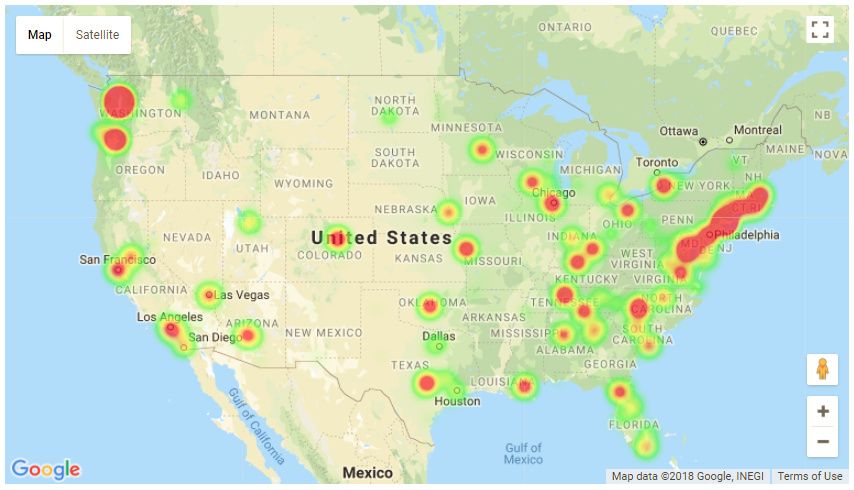You would almost think Bill Wirtz had risen from the grave to formulate the National Hockey League’s broadcast plan. The late Chicago Blackhawks owner, known as “Dollar Bill”, refused to put his team’s home games on the local TV broadcasts, slowing the growth of local support. His short-sightedness echoed in the NHL’s efforts in recent years to restrict viewing parties — you know, those huge, public events where fans go to whip themselves into a fervor over the product the NHL is trying to sell.
Some people wonder why the NHL wants to limit viewership. Watch parties are perfect for certain segments of fandom: those who can’t afford to watch in person but want the communal experience; bandwagon jumpers (who just might get hooked); and folks who live out-of-market or are traveling. FanWide has the world’s largest database of sports fan clubs, making it easy for NHL fans to find the closest game watch party, wherever they live or travel.

Yet, in 2015 and 2016, the NHL limited such events over fears those gatherings would hurt their TV ratings, because the companies that measure TV viewership are unable to accurately track group viewing events. Did the league learn nothing from Dollar Bill that this does not address the real problem?
From Bad to Wirtz
Until his death, Wirtz famously kept the Hawks off TV. He claimed it would be unfair to the season ticket holders. Yet the fact that he couldn’t sell beer and parking spots to folks at home on their couches might have had something to do with it.
Never mind that if some of those people had tripped across a few broadcasts, they might have been enticed to check out the home team for themselves — a fact realized by current Hawks boss Rocky Wirtz. Six weeks after his father’s death, he televised a home game and now broadcasts a full slate.
In 2006-07, the Hawks’ average home gate was 12,727. In 2007-08 it was 16,814 and hasn’t been under 21,000 since.
Nothing to See Here
In 2015, Boston Mayor Martin J. Walsh was planning a Copley Square simulcast of the New Year’s Day Winter Classic contest between the Bruins and Canadiens when the NHL put the kibosh on the event.
NBC and the NHL issued a joint statement, saying in part, “public viewing gatherings for nationally televised regular-season games are not permissible under NHL media-rights policies.”
In 2016, the NHL forced Tampa Bay to cancel a scheduled watch party for Game 7 of their Eastern Conference Finals series with Pittsburgh, reportedly claiming the team was only allowed one official watch party per series and had used it up for Game 5.
Wising Up?
Among the critiques to come the NHL’s way, Forbes contributor Will Burns claimed the league was blowing an opportunity. He noted the league might capitalize on the events in a few ways, including:
- Taking ownership of the events and selling live sponsorships either as part of or in addition to network ad buys.
- Blocking the broadcast ads on the big screens and selling different ads at higher rates.
- Looking at it as a branding opportunity — and consider all the free marketing those partiers will do for you across their chosen social media platforms.
Maybe the NHL is taking that advice. During the 2017 Stanley Cup Finals, Nashville hosted watch parties for every game of the series. The Predators sold out their home stadium, Bridgestone Arena, for a Game 5 played in Pittsburgh. Of course, the Predator fans had to sit through a 6-0 loss to the Penguins, so maybe they’d have been better off if NHL had stuck to its ban …
Guest author bio: AJ Lee is Marketing Coordinator for Pro Stock Hockey, an online hockey shop offering authentic pro stock hockey equipment. He was born and raised in the southwest suburbs of Chicago and has been a huge Blackhawks fan his entire life. AJ picked up his first hockey stick at age 3 and hasn’t put it down yet.
